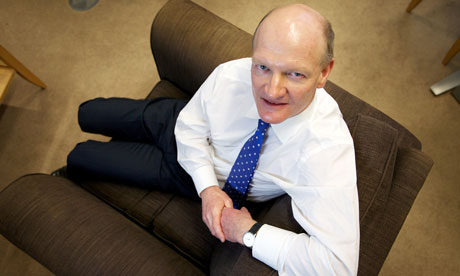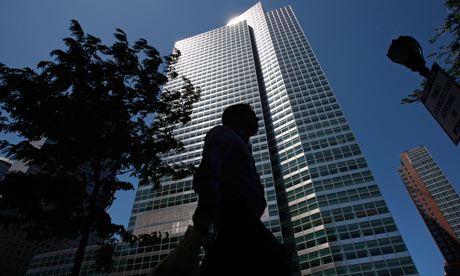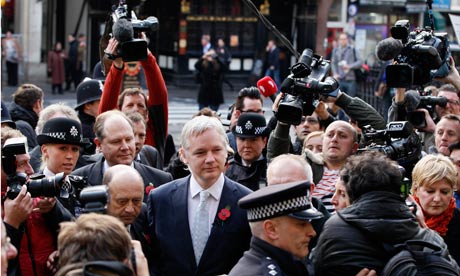India's move to strip German drugmaker
Bayer of its exclusive rights to a
cancer drug has set a precedent that could extend to other treatments, including modern
HIV/AIDS drugs, in a major blow to global pharmaceutical firms, experts say.
On Monday, the Indian Patent Office effectively ended Bayer's monopoly
for its Nexavar drug and issued its first-ever compulsory license
allowing local generic maker
Natco Pharma to make and sell the drug cheaply in India.
It is only the second time a nation has issued a compulsory license for a cancer drug after
Thailand
did so on four drugs between 2006 and 2008, also on affordability
grounds. Thailand also issued licenses for HIV/AIDS and heart disease
treatments.
"This could well be the first of many compulsory rulings here," said
Gopakumar G Nair, head of patent law firm Gopakumar Nair Associates and
former president of the Indian Drug Manufacturers' Association.
"Global pharmaceutical manufacturers are likely to be worried as a
result ... given that the wording in India's Patent Act that had been
amended from 'reasonably priced' to 'reasonably affordable priced' has
come into play now."
The new wording is seen as a lower
threshold for compulsory licenses, which can be issued under world trade
rules by nations that deem major life-saving drugs to be too costly.
The licenses allow them to authorise the local manufacture or
importation of much cheaper, generic versions.
Global
drugmakers see emerging markets such as India as key growth
opportunities, but remain concerned over intellectual property
protection. Nair said HIV-related medicines were likely to be the most
at risk by compulsory licenses in the future.
India has one of
the world's fastest-growing rates of HIV and heart disease is also the
country's biggest killer, but widespread poverty in Asia's third-largest
economy makes many non-generic drugs unaffordable for millions.
Currently,
Pfizer
and GlaxoSmithKline sell a modern HIV/AIDS drug known as Selzentry
through their joint venture firm ViiV Healthcare. The treatment costs
more than 60,000 rupees for one month's dosage in India.
Bayer's Nexavar cancer drug costs around $5,500 a month in India, making
it "not available to the public at a reasonably affordable price", the
patent office ruled. About 40 percent of Indians live below the poverty
line, government data shows.
A provision of the Indian Patents
Act allows for a compulsory license to be awarded after three years of
the grant of patent on drugs that are deemed to be too costly.
MORE TO COME?
Other patent rulings are imminent. A long-running case involving the
granting of an Indian patent for Swiss drugmaker Novartis' cancer drug
Glivec is expected to be heard in the country's Supreme Court this
month.
The case does not involve the issue of compulsory
license, but it has also pitted advocates of free trade and intellectual
property rights against pro-generics campaigners who say a ruling in
favour of
Novartis could see other drugs in India priced outside of the reach of most of the population.
"This (Bayer) case might become a trend-setter, wherein generic players
can make copies of patented products," said Siddhant Khandekar, analyst
at ICICI Direct.
"While global giants might not like this,
generic companies will benefit along with common people," he said,
adding that the cancer treatment market in India was worth up to 30
billion rupees.
The Bayer case underscores the still fractious
relationship between global pharmaceutical firms and India. Companies
like Pfizer, GlaxoSmithKline and Novartis are eyeing India and other
emerging markets, notably China, as a growth opportunity but worry about
property protection in a country that is also a leading source of cheap
copycat medicines.
"Big Pharma" has recently struck some
alliances with Indian drugmakers to tap into their generics expertise,
but these have also not always run smoothly, with Pfizer on Tuesday
scrapping a partnership with India's
Biocon Ltd. In cancer treatments, India's
Cipla Ltd,
which has the second largest share of the local drugs market, may also
benefit from the Bayer case. Cipla is fighting a Bayer suit for patent
infringement after the Indian drugmaker launched a generic version of
Nexavar in India in April 2010.
BAYER CONSIDERS OPTIONS
Natco's finance chief, Baskara Narayana, told Reuters that sales of the
generic version of Nexavar, whose chemical name is sorafenib, were
expected to be about 250 million to 300 million rupees a year once it is
launched.
Bayer, which developed Nexavar with US biotech firm Onyx Pharmaceuticals, said it was evaluating its options.
"We are disappointed by the decision of the Patent Controller in India
to grant a compulsory license for Nexavar," Bayer said in a statement.
Tapan Ray, director general of the Organisation of Pharmaceutical
Producers of India, an industry group of multi-national drugmakers, said
the Bayer ruling was disappointing.
"The solution to helping
patients with innovative medicines does not lie in breaking patents or
denying patent rights to the innovators," Ray said.
Pfizer has questioned the issue of affordability, saying many Indians are well off and can afford Western medicines.
"There is huge wealth in India," Pfizer CEO Ian Read told Reuters in
London
on Monday. "There are maybe 100 million people in India who have wealth
equivalent to or greater than the average European or American, who
don't pay for innovation. So this is going to have to be a discussion at
some point."
But groups that campaign for cheap access to drugs in poor countries have welcomed the Bayer ruling.
Medecins Sans Frontieres
said the ruling means that new medicines in India that are still under
patent, including some of the latest treatments for HIV/AIDS, could
potentially have generic versions produced for a fraction of the cost.
"It's a bold move by the government and it's a good judgment ... which
will benefit people," said Dara Patel, secretary general of the Indian
Drug Manufacturers' Association, an industry body of Indian companies.
"Drugs to treat heart-related diseases and HIV are costly," said Patel.
"Compulsory licensing will make them available at one-fourth or
one-fifth of the price, which is good."





